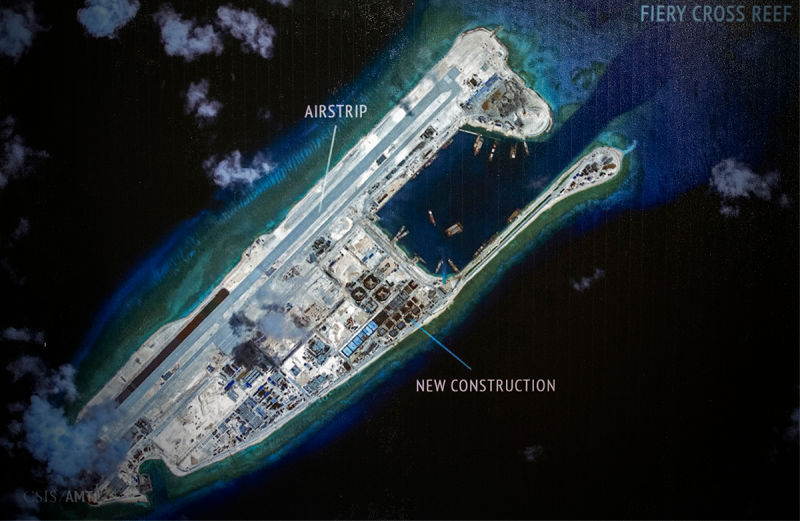No one would want war to break out in the South China Sea; however, an increasing tug of war between the United States and China could plunge the world’s busiest sea lane into turmoil.
The territorial disputes in the South China Sea continue to evoke tensions across Asia due to actions by Beijing seen by many as little more than a land grab. China says the sea belongs to it, but its neighbors don’t agree. And America seems keen on testing the waters.
Analysts warn that the risk of conflict in the seas is significant, especially as the United States pushes the limits of China’s claim – which stretches to almost its entire area – by sending warships near Beijing-controlled territories.
In this matter, Zhang Baohui, a Political Science Professor and Director of the Centre for Asian Pacific Studies at Lingnan University in Hong Kong, said: “Such operations could gravely destabilize the South China Sea situation, even peace and stability of the whole region”. “They could touch off an unintended escalation and push the two countries towards military conflicts,” he added.
China claims most of the South China Sea, through which more than $5 trillion of world trade ships every year, and this is the problem the region is facing.
The United States has no claim in the South China Sea, but has been highly critical of China’s assertiveness and says it will protect freedom of navigation.
China’s increasing military presence in the disputed sea could effectively lead to a Beijing-controlled air defense zone ratcheting up tensions with other claimants and with the United States in one of the world’s most volatile areas.
China has landed a plane for the first time on one of its new island runways in South China Sea, which shows Beijing’s facilities in the disputed region being completed on schedule, and military flights will inevitably follow.
Vietnam launched a formal diplomatic protest, while Philippines Foreign Ministry spokesman Charles Jose said Manila was planning to do the same. Both have claims to the area that overlap with China. In Washington, State Department spokesman John Kirby said China’s landing of the plane “raises tensions and threatens regional stability.”

